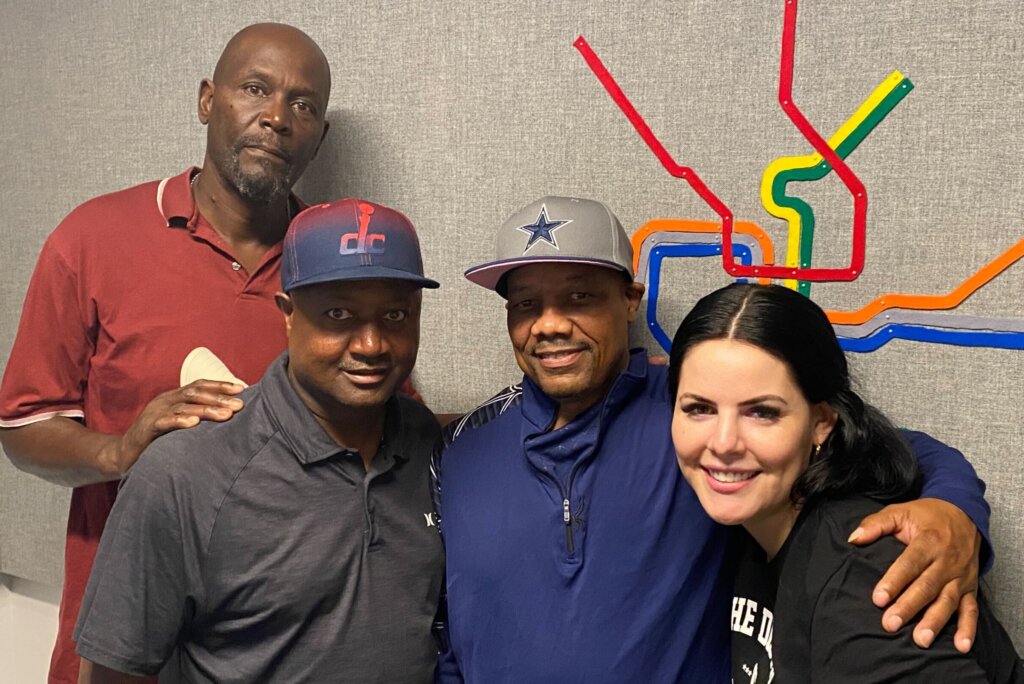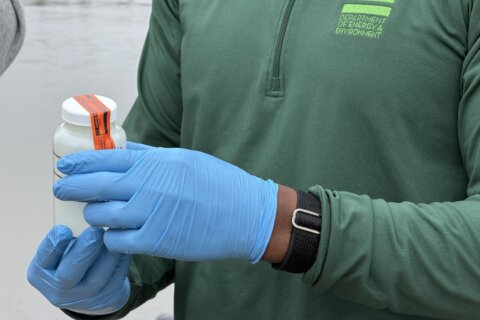This video is no longer available.
Police and prosecutors moved quick when the body of Catherine Fuller was found brutally murdered in an alley near the intersection of H and 8th streets in Northeast D.C. in 1984.
Critics accused the investigation of being so quick; it was reckless. In all, 17 people were arrested — all of them Black — of whom eight were ultimately convicted.
Those men spent decades in prison, forgoing what would have been far shorter prison sentences had they pleaded guilty because, to this day, they claim they didn’t do it.
They appealed through the legal system, getting their case all the way up to the U.S. Supreme Court, which in 2017 ruled 6 to 2 that evidence withheld by prosecutors wouldn’t have changed the outcome of their trials.
“They said that we never brought up or challenged the government’s case, that it was not a group attack,” said Christopher Turner, who served 26 years in prisons all across the country.
“The government’s theory, in fact, was false to begin with. And they knew it was false. But they proceeded and they presented it in trial. And they say that we could not contest it. Because all of us were saying we weren’t there. So whatever the government theory was, we actually couldn’t challenge the theory because we wanted to say that it was false.”
A woman named Shannon Lynch, who used to live along the H Street corridor, has been shining new light on the case through her podcast, “The Alley: DC’s 8th and H Case,” produced by the New America Foundation. The Innocence Project has also taken up their cause.
“There were several pieces of evidence that the prosecutors had from all of the defense lawyers. One of them, probably the most notable, is that there were several eyewitnesses, including a police officer who saw a young man running from the scene with an object under his coat,” said Lynch.
She said that man was arrested for similar attacks just a few weeks after Fuller’s body was found, and later “convicted of assault against middle-aged woman in the same exact neighborhood. But because he didn’t fit into this gang theory … they didn’t pull him in. And they knew that whole time they had all these records of these eyewitness accounts.
“But all of that information was hidden from the defense attorneys. So they couldn’t really challenge … the theory because all they could use is an alibi defense. Whereas if they knew about this potential alternative perpetrator, they could have challenged the whole idea of it was a group gang attack.”
“They made us look like we were vicious killers in D.C. — and I lived there all my life,” said Russ Overton, who is 64 now and served more than 37 years in prison.

At this point, all six of the men who were convicted who are still alive are now out of prison. They’re making one last-ditch effort to save their names. Since they were convicted in a D.C. courtroom, they must formally apply for a pardon from President Joe Biden.
“The podcast, this story, other stories, we think that they will reach the president’s desk, if they reach his desk and the facts reach his desk. Then we are sure that he will do the right thing and grant us a pardon,” Turner said.
It’s something all three men who spoke to WTOP say they hope to get for themselves, but also for their families.
“Taking this burden off our shoulders, of us, our families, you know, our character to have been slandered, you know, for a brutal murder that took place,” said Clifton Yarborough.
“If you flashback to 1984, we were rejected. We were despised,” Turner said. “We went through a lot of animosity with people, other prisoners and police spitting on us, throwing stuff at us, doing things to our food to contaminate it. So, we went through a lot to get where we are today.’
“If you just fast forward to 2023, this case makes sense to nobody that hears it,” he added. “It should not have made sense in 1984. It shouldn’t have made sense then the way it doesn’t make sense today.”
The group has optimism that the Biden administration and the Justice Department will see it the same way, as long as they look at all the facts presented.
“It’s just a matter of people hearing and learning about the story,” said Lynch. “It’s not a matter of the facts because the facts are so clear of what actually happened.”
What also gives them hope is that, for the first time in decades, there are people beyond their family and friends who are listening to their story and care about them as people again. But Overton knows that not everyone does.
“You know, we don’t deserve this,” said Overton. “We wasn’t there. I wasn’t there. And it’s not right. It’s not right at all.”








